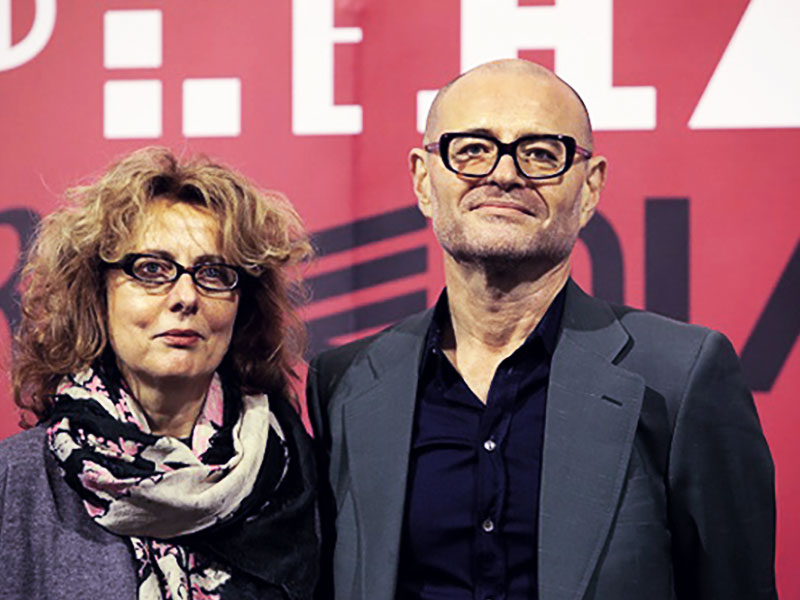
Nonna Mihalcean: Cultural projects require a lot of dedication
Ivan Mitin is the person who created the very first anti-cafe, first in Moscow and then in many other cities around the world (St. Petersburg, Ljubliana, London, Kiev, New York, Bucharest) – a chain of cafes where each represents a specific cultural hub and social space. Friends can meet and discuss or organise events such as: exhibitions, presentations, reading evenings, etc. in such anti-cafes.
Chapter I: Idea and people
Two years ago I went to Ukraine to participate in an experience exchange initiative, where I had the opportunity to find out about the concept of anti-cafe as a profit project. Young people would come there to spend some time in a meaningful way, work and have some tea. It seemed interesting to me, so when I returned, I decided to try to organise a similar cultural space at home.
It was not that easy to launch this kind of project, quite unique for the Republic of Moldova. First and foremost, the concept was unknown and just a few got interested and decided to participate.
It was complicated to find everything for the layout of the space, because we had our own vision with this space being special and quite different from the rest of the existing youth cultural hubs in Moldova. It was easy to find a suitable location, but finding funding was on the contrary quite challenging. Currently, over 50,000 LEI have been invested in the space inventory, decoration, gadgets and repair works. The 80-square-meter Anti-café has become a well-known brand and is highly appreciated by young people in the northern region. The cherry on the top is the ability to spend here some time in a non-formal way, as instead of chairs, we have equipped the space with a large comfy carpet and pillows sewn by our volunteers. Anti-café services are absolutely free to all its visitors.
Chapter II: Activities and promotion
With our team of 5 dedicated members we focus our activities at young people from the northern region of the country. We organise interactive seminars; thematic trainings, personal development events; cinema evenings; social celebrations; guitar evenings; meetings of the Volunteer Club and Academic Debate Club; handmade workshops; events dedicated to national and international projects; events for exchange of experience (study visits); summer camps; social theatre; meetings of the ITA Intercultural Club; and sport activities.
Our secret is the team spirit of our employees and their dedication. Another important ingredient is that we managed to respond to the needs for our young audience which has not been catered for before. A young man who comes to our Anti-Cafe has an opportunity to relax, go out, get entertained, learn something new and socialise at different levels. Most importantly, we have not stopped for a moment trying to achieve our goal.
It was a mistake at the beginning to focus more on the activities and pay very little attention to the media coverage.

Chapter III: Financing, aid or investment?
Half a year after the launch we’ve realised that we do not have all the necessary materials, technical and other conditions for doing business. I had no projector, computer, speakers, windows were the ones installed in the 1970’s while winters were very cold. As a solution, we applied for assistance from the Guvern24, a national fundraising platform. I wrote letters and inquiries to embassies, businesses, colleagues in the field, partners, and organised a team of volunteers specialised in fundraising.
Cultural projects require a lot of effort and dedication, there is a real need in high team qualification and funding. The latter should better come from business sector, but cultural projects do not seem to be among their priorities. EU funding and other large NGO funds are not easily available for small NGOs or those who are at the very beginning. We have not benefited so far from any funding in our Anti-cafe projects, being new on the market and with literary no experience. That is why we try to grow ourselves using our own sources and volunteering as much as possible.
Getting funding is hard, as I mentioned above, especially for small or inexperienced NGOs. The primary needs (bills for heating, water, space rent, average economy salary for project coordinators) are covered by the local public authorities, and the rest of the investments related to the repair works, its endowment, necessary technical equipment, etc. are covered by permanent collection of funds and investments.
Chapter Four: Heroes
If we talk about how much people in the community are prepared for such projects, theoretically it is 90%, but practically, if we talk about real involvement and support – then it is 25%.
In working with cultural / social projects, it is important to be aware of their importance for the community, to love your work and be ready to sacrifice in order to achieve its purpose. Otherwise, everything goes down, especially since today it is much easier to find 1000 excuses and barriers to do something rather than to start looking for solutions. I think that those who work in this sphere are heroes.
***
What are we proud of?
• To have developed 3 projects by youth / volunteers of the center in just 1 year (organisation of the kitchen space for young people / a gym / purchasing a tennis table for the youth center);
• 3rd place in 2017 at the National Social Theatre Festival organized by Y-PEER Moldova;
• 2017, National Youth Municipal Competition, the Anti-café Team took first place for the best video spot;
• During the National Youth Week, I got awarded by the Ministry as the winner in the category of Youth Worker for my work with the Anti-cafe;
• For the first time in its 15 years of existence the CRAT Teenagers and Youth Resource Center (the Anti-café has been developed on the basis of this centre) took the first place in the category "Best Youth Center in Balti" in 2017.




